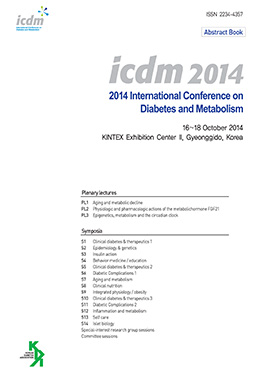Objective: Glucose-lowering effect of the dipeptidyl peptidase-4 (DPP-4) inhibitor has been observed even in patients who were treated with insulin. In this study, we conducted a systematic review and meta-analysis on the efficacy and safety of the DPP-4 inhibitor combined with insulin therapy in patients with type 2 diabetes.
Methods: We conducted an electronic search of Medline, Embase, Lilacs, Cochrane Library and Clinicaltrials.gov databases up to June 2014. Randomized controlled trials were selected if they had at least 12 weeks of treatment duration, compared a DPP-4 inhibitor and insulin combination therapy (INS/DPP4i) with insulin alone (INS) in patients with type 2 diabetes mellitus, and described in English. The primary outcome was the change in hemoglobin A1c (HbA1c). The secondary outcomes included body weight change, fasting plasma glucose (FPG), hypoglycemia, and insulin doses.
Results: Of 2,578 potentially relevant studies, 9 studies met the inclusion criteria. INS/DPP4i therapy exhibited a greater HbA1c reduction than INS therapy (weighted mean difference [WMD], -0.55%; 95% CI -0.65, -0.44). A greater reduction in FPG was also observed in INS/DPP4i therapy (WMD, -10.13 mg/dl, 95% CI -14.14, -6.11). The incidence of hypoglycemia was similar between INS/DPP4i and INS therapy (relative risk [RR], 0.99; 95% CI 0.77, 1.28). Despite better glycemic control, INS/DPP4i did not elicit weight gain (WMD, -0.12kg; 95% CI -0.50, 0.26). In addition, INS/DPP4i therapy exhibited an insulin sparing effect compared to INS therapy (WMD, -4.10 units per day; 95% CI -7.40, -0.79).
Conclusion: Combined DPP-4 inhibitor and insulin therapy significantly improved glycemic control without increasing the risk of hypoglycemia and weight gain and exhibited an insulin sparing effect in patients with type 2 diabetes.




